As any aficionado of the genre will tell you, there are three key components to any self-respecting spy yarn: fieldcraft, gadgets and twists.
Fieldcraft, because observing a mark from afar, following them down a busy street, breaking into their apartment, riffling through their belongings or – if need be – catching them unaware with a surprise attack is the very essence of the experience.
Gadgets, because a spy without a miniature camera, concealed weapon, earpiece radio or high-powered binoculars is just a tedious, garden-variety stalker.
And twists because, as you are reading this, one of my operatives is emptying your fridge and replacing all contents with wee placards extoling your gullibility. We've been after your perishables for years!
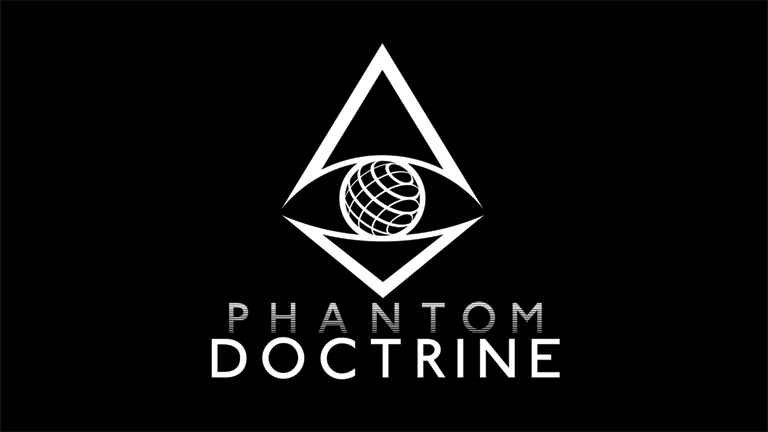
And though Phantom Doctrine only does two out of the three justice, luckily it's the two that matter most.
Taking place in 1983, at the tail-end of the Cold War, CreativeForge's 2018 turn-based spy simulator puts you in charge of a letter agency cell (CIA, KGB or Mossad), which – over the course of its duties – stumbles onto the trail of a global conspiracy. Starting with a handful of agents and an under-equipped base, you are tasked with tracking down the source of REDACTED and preventing a global REDACTED REDACTED (more on the intentional vagueness later).
A competent XCOM clone, Phantom Doctrine makes use of all its familiar core components.
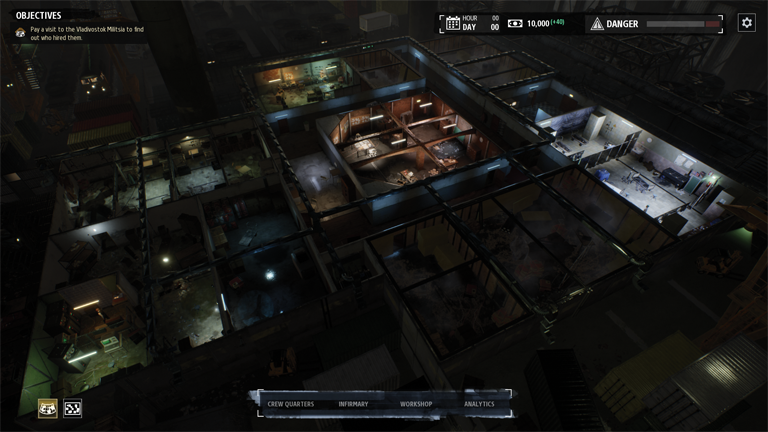
There's the Base screen, where you research new technologies, equip your agents, recuperate the wounded or learn new skills.
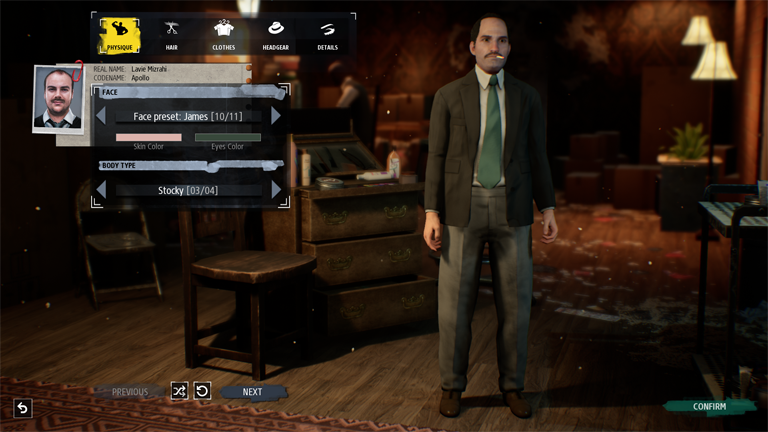
A decent Character Editor (cleverly hidden under its Forger facility guise), which allows you to customize your agents' appearance and provide them with new identities, should their existing ones be blown.
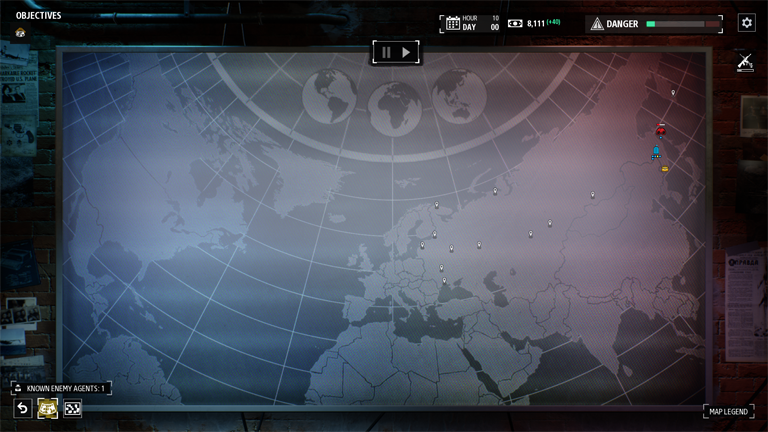
And the Map screen, where you make all of your strategic decisions, advance time and react to unfolding events.
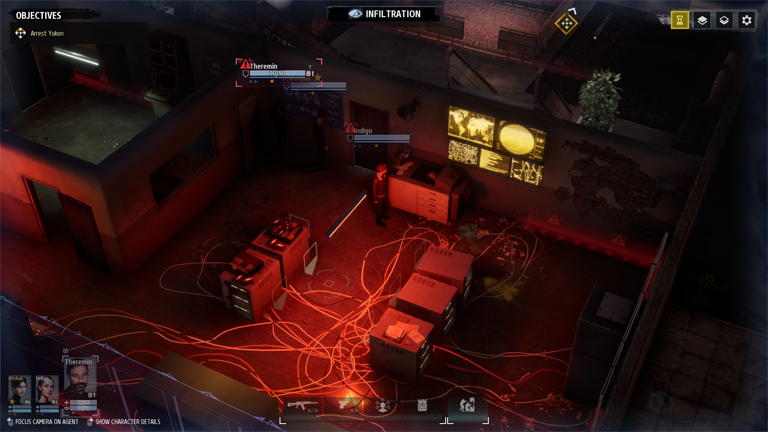
Once you actually venture out on a mission, the turn-based spying works much in the same way as its alien-hunting forebear: your agents can move twice and attack once per turn, each agent has two weapon slots (primary and backup), can be equipped with armor and gadgets (such as medkits, lockpicks or grenades); can hide behind cover and so on. Its mechanical similarity to XCOM makes Phantom Doctrine immediately accessible for anyone who played either of the two excellent Firaxis games.
But it's what Phantom Doctrine does differently that sets it apart from its mechanical inspiration and makes for its own, unique experience.
First, there is the global Danger counter, which rises each time you make a mistake, fail an operation or generally let your opponent get one up on you. Let the counter rise high enough and you risk discovery of your base of operations, but – unlike XCOM, where all you could do was defend your base from attack – here you have the option to simply move your entire base someplace else.
Second, the game is all about postponing tactical combat for as long as possible and making use of agent abilities (such as distractions, disguises, body disposal or takedowns) to remain undetected. It makes for a much more tense experience than simply going in guns blazing and keeping track of guard routes, cameras and unwitting civilians out on a smoke break (who will nonetheless rat you out if they see you in a restricted area) creates a more calculated atmosphere equally rooted in vigilance and paranoia.
Third, there is Awareness: an agent stat that, on the surface, functions like TUs from UFO: Enemy Unknown, determining how many actions you can take, but also adding a rock-paper-scissors element and making combat much more direct and fast-paced. Attack someone with higher Awareness than your agent and you will miss — no RNG about it. Attack someone with values closer to your own and you will graze them, dealing minimal damage. Not everyone's a fan of the mechanic, but I – for one – find it refreshing and more representative of live combat between trained professionals than shots at twenty paces that miss because your random to-hit roll was off by one.
Lastly, in true spy fashion, you can never be sure your agents are as trustworthy as they appear as the game uses hidden perks and randomly generated scenarios which can turn a favorite character into an instant question mark.
The perks, while not revealed, can turn out to be enemy brainwashing, which will turn your agent against you during combat. As for the scenarios, they occur as little vignettes which show characters in a new light (as a double-agent, selling info on the side or wanting to go off to help a friend in need) and give you a few choices on how to resolve the matter. Depending on how you act, the agents in question can either turn Loyal (ensuring they will never be turned in the future), go work for the enemy or anything in between. It makes for a fittingly unnerving experience that always leaves you guessing if the premium gear you just put on an agent won't be used against you at the next opportunity.
Everything up to and including the tactical part of the game is done very well. The graphics and animations are eyecatching and lifelike, the music is appropriately moody and the sound effects serviceable if unexceptional. Where running your own spy cell and going on missions is concerned, Phantom Doctrine gets high marks and makes for an enjoyable, engrossing experience.
There are only two areas where it falls a little flat.
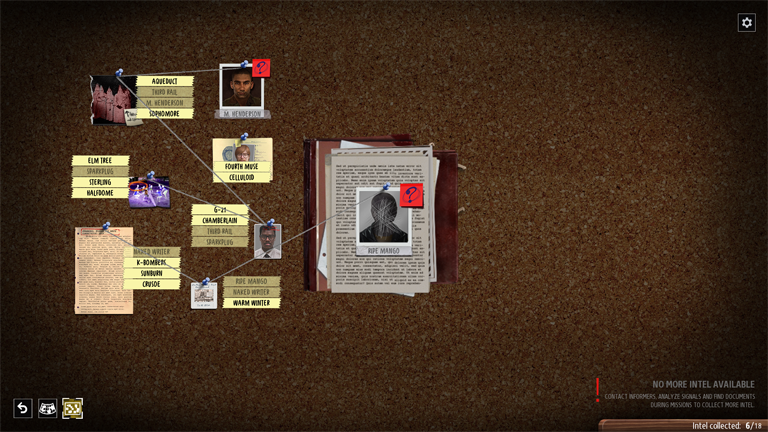
One is the intelligence gathering component, which involves you putting up snippets of information up on a cork board and linking identical words together. In that it's something else to do, it's okay, but there is no knack to it – no real gameplay value – and until you get enough snippets together, by collecting intel on missions, you are stuck with a static element that cannot be budged forward or interacted with. It is not a real weak point, but it does represent a missed opportunity in an otherwise competent whole.
The other shortcoming (and this may sound weird coming from a pig obsessed with good writing) is the plot. Worry not: there is one. But it's so bland and so riddled with forgettable elements and characters that it only serves to propel you from one mission to the next. At no point will it surprise you or stand out in your memory – not because it's bad, mind, but simply because it is so meh.
But considering how much fun the tactical missions are and how well the rest of the game functions without it, having a meh plot is almost a benefit, of sorts, allowing you to focus on what the game excels at.
While Phantom Doctrine is just another in a long list of glorified XCOM conversions, it may well be one of the few which manages to create a unique experience and atmosphere. If you have a hankering for a bit of spycraft, feel like sneaking into a restricted Cold War facility right under the guards' noses, or simply want to enjoy a coherent, competently assembled game, do give it a try.
Oh – and do stock up on potatoes and sweets for my next spy game review: you seem to be running low.
